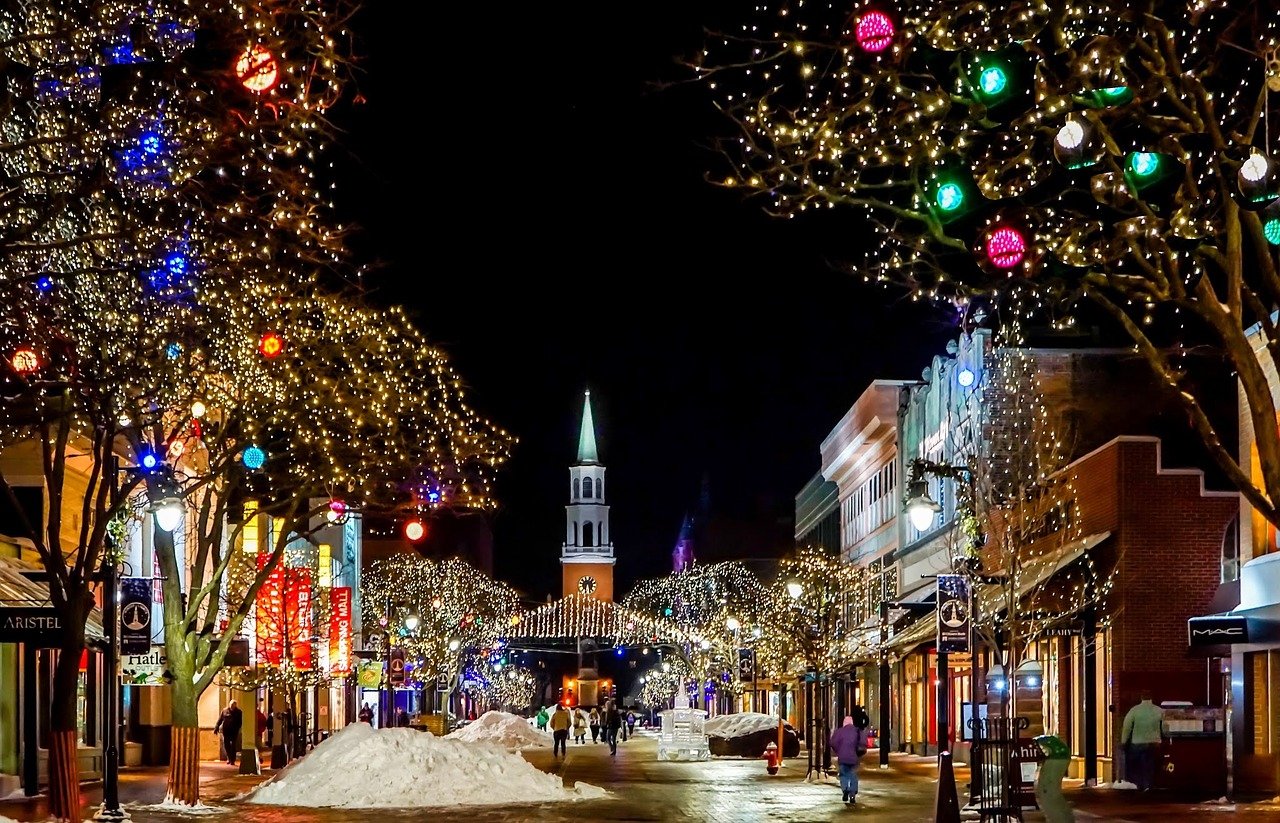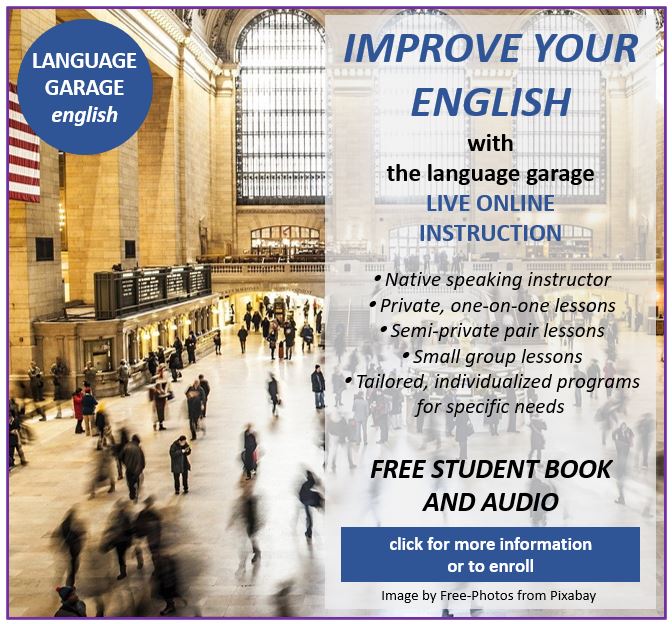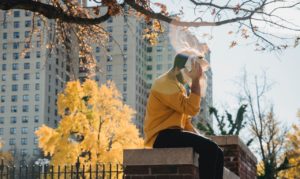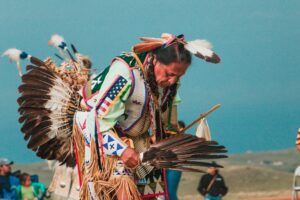Peace and Joy! Talking about the Holidays in English
In this post you’ll learn how to talk about the Holidays in English. That means that you’ll learn vocabulary and expressions related to the end-of-year holidays. First you’ll learn some greetings for Christmas, Hanukkah, and Kwanzaa. Then you’ll learn how to talk about all of the beautiful decorations associated with these holidays. After that you’ll learn how to talk about presents and the holiday spirit. Finally, you’ll learn a lot of vocabulary and expressions related to New Year’s celebrations in English.
Merry Christmas & Happy Hanukkah
The first thing you may want to know how to say is of course Merry Christmas or Happy Hanukkah. Some people prefer to use the generic Happy Holidays if they’re not sure which holiday the person they’re talking celebrates. A similar expression is Seasons Greetings!, but that’s mostly used in writing, for example on holiday cards. Some Americans celebrate Kwanzaa between December 26th and January 1st.
- Merry Christmas!
- Happy Hanukkah!
- Happy/Joyous Kwanzaa!
- Happy Holidays!
- Season’s Greetings!
There are plenty of other ways you can wish someone a happy holiday, no matter what holiday they celebrate.
- Enjoy the holidays! Enjoy the holiday season! Enjoy this time of year!
- Have a great holiday! Have a great holiday season!
- Have a beautiful/wonderful/healthy/happy holiday!
- Do you celebrate Christmas/Hanukkah/Kwanzaa?
- I hope you have a good December.
- I hope you see your friends and family.
- I wish you peace, health, and happiness!
- I hope you get a lot of presents.
Decorations
Lots of people put up decorations this time of year. In this section we’ll cover Christmas decorations, Hanukkah decorations, and Kwanzaa decorations.
Christmas Decorations
The most popular Christmas decoration is of course a Christmas tree. Many people also put up mangers or nativity scenes, which show the birth of Jesus, and other colorful decorations inside their house.
- We’re going to buy a Christmas tree this weekend.
We’re going to put up the Christmas tree.
Do you get a real Christmas tree? Or do you have an artificial one? - Let’s decorate/trim the Christmas tree.
First, we’ll wrap colorful lights around the tree.
Then we’ll put garland and tinsel on the Christmas tree.
Next, we’ll put/hang the ornaments on the Christmas tree.
Finally, we’ll put the angel/star on the top of the tree. - We put up a manger/nativity scene every year.
The manger has Mary, Joseph, Baby Jesus, the Three Kings/Three Wise Men, shepherds, an angel, a donkey, a cow, and a lamb. - Each member of the family hangs a stocking on the mantlepiece over the fireplace.
Hanukkah Decorations
The best known Hanukkah decoration is of course the hanukkiah or Hanukkah menorah, a lamp with nine candlesticks. The eight candlesticks symbolize the eight days of Hanukkah, and the ninth one is used to light the others.
- My family puts up Hanukkah decorations.
Let’s hang the Star of David.
Let’s spin the dreidel. - A menorah has nine candles.
We light a candle on every night of Hanukkah.
Kwanzaa Decorations
Kwanzaa decorations are often red, black, and green. If someone you know celebrates Kwanzaa, you may see a kinara, a candle stick with seven branches.
- The kinara has seven branches that symbolize the seven principles of Kwanzaa.
Our Kwanzaa display includes corn and other vegetables and colorful African prints.
Santa Claus, Reindeer, and Elves
A lot of holiday decorations are related to winter and the story of Santa Claus, who gives gifts to children all around the world. According to holiday tradition, Santa lives at the North Pole with a bunch of elves, who help him in his toy shop. On Christmas Eve, Santa rides around the world in a sleigh pulled by eight flying reindeer. (There’s often a ninth reindeer named Rudolph, who guides the others with his glowing red nose.) Santa enters houses by going down the chimney, and then he leaves presents under the Christmas tree.
- There are colorful lights on the house.
There are Christmas lights in the trees.
The lights are blinking/twinkling. - There are snowmen and reindeer in front of every house.
We put up a big inflatable Santa Claus.
Our neighbors put Santa’s sleigh and eight reindeer on their roof.
There are elves and candy canes in the store window.
Rudolph the reindeer has a shiny red nose and leads the other reindeer.
Presents!
Exchanging presents is of course a big part of the holiday season, so you may want to say: gift/present, wrapping paper, card, ribbon, bow.
Giving Presents
- We get eight gifts for Hanukkah.
Children get chocolate Hanukkah gelt coins. - Kwanzaa gifts are often creative and homemade.
I made this gift for you myself. - I have to buy gifts/presents for a lot of friends and relatives.
I didn’t know what you’d like, so I got you a gift card.
I don’t know what to get for my father. He’s so hard to shop for! - I need to wrap a lot of gifts/presents.
Do you have wrapping paper?
I need more tape and empty boxes.
Put a bow or a ribbon on the gift. - Santa Claus left lots of presents/gifts under the Christmas tree.
Unwrap your presents! - What did you get for me?
- I got some small stocking stuffers for the kids.
Getting Presents
If someone gives you a present, you can show your appreciation by saying:
- This is a great/fantastic/wonderful/awesome present!
- You’re so generous/thoughtful.
- I love my present.
- It’s exactly what I wanted. How did you know?
Holiday Happiness, Goodwill and Cheer!
The holiday season means different things to different people. Some good words to know to describe the holiday spirit are: cheer, cheerful, generous, giving, hope, wish, charity, charitable, goodwill.
- I love the holiday season.
This is the happiest/most wonderful time of year!
I’m always very cheerful during the holidays.
Everyone is full of goodwill and holiday spirit! - There is Christmas music everywhere.
Let’s go Christmas caroling! - I’m looking forward to the holidays.
I can’t wait to see my friends/family for the holidays.
I’m excited to see my loved ones for the holidays. - I wish for peace on earth.
The kids are hoping for snow and lots of presents!
I hope that everyone is kind and generous.
I hope my whole family can get together. - We’re donating gifts for poor families.
It’s important to be charitable and to give food to people who need it. - I’m thankful for my family and friends.
You may hear people use the words Scrooge or Grinch around the holidays. Scrooge is a character from Charles Dickens’ A Christmas Carol; he was a sad and lonely man who valued money and work over friendship, love, and family. Thankfully he learned his lesson about the meaning of Christmas from three ghosts, and in the end he became kind and generous. But if someone is unhappy during the holidays, that person may be called a Scrooge. The Grinch is similar, but from Dr. Seuss’s children’s tale How the Grinch Stole Christmas.
- Don’t be such a Scrooge! Let’s put on Christmas music and sing!
- My brother is such a Grinch. He can’t wait for the holidays to end.
Happy New Year!
Soon enough, the year will come to an end, and people everywhere will drink a toast to the new year.
Preparing for the New Year
New Year’s Eve parties are pretty common, so you may want to say:
- Are you going to a New Year’s Eve party?
We throw a party every New Year’s Eve.
I’m inviting friends to a party.
We were invited to a party.
Did you get your invitation to my party? - We eat a big dinner with family and friends.
We don’t like parties, so we stay in and have a quiet dinner on New Year’s Eve.
New Year’s Even Parties
A typical New Year’s Eve party involves champagne and other drinks, but streamers, hats with glitter, blowouts (little horns that roll out colorful paper when you blow them), confetti, and all sorts of other party favors can often be found.
- Happy New Year!
Cheers!
Here’s to the new year!
It’s midnight, let’s toast the new year! - Everyone raise a glass to the new year!
Can I get you more champagne?
Can I top off your drink? - At midnight, everyone shouts Happy New Year!
There’s glitter and confetti everywhere! - Peace, health, and happiness in the new year!
I hope your new year is full of happiness and success.
New Year’s Resolutions
Making a resolution is a common New Year’s tradition. A New Year’s Resolution is a promise that a person makes to him or herself that usually involves self-improvement of some kind. You may hear the expression New Year, New You, meaning that you can create a new (and hopefully better!) version of yourself in a new year.
- What are your New Year’s Resolutions?
Have you made any New Year’s Resolutions? - I want to get in shape in the new year.
I want to eat better in the new year.
I want to be more healthy in the new year.
I’m getting a gym membership. - I want to learn a new language in the new year.
I want to take up piano/guitar/tennis in the new year.
I’m going to start to meditate/to do yoga in the new year. - I want to quit smoking in the new year.
I’m going to drink/swear less in the new year. - I’m going to be kinder/nicer in the new year.
I’m going to be more patient.
No matter what holiday you celebrate, we wish you great health and happiness!
Get on the road to better English with the Language Garage!
We hope you’ve enjoyed learning some vocabulary and expressions that you can use to talk about the holidays in English. Now you know English vocabulary for Christmas, Hanukkah, Kwanzaa, and the New Year. If you’re interested in ESL/EFL lessons, please check out our English courses. We have private lessons, lessons for you and a friend or colleague, or small groups. Or see our other posts on English grammar, vocabulary, and more.
Image Credit: Michelle_Raponi on Pixabay






